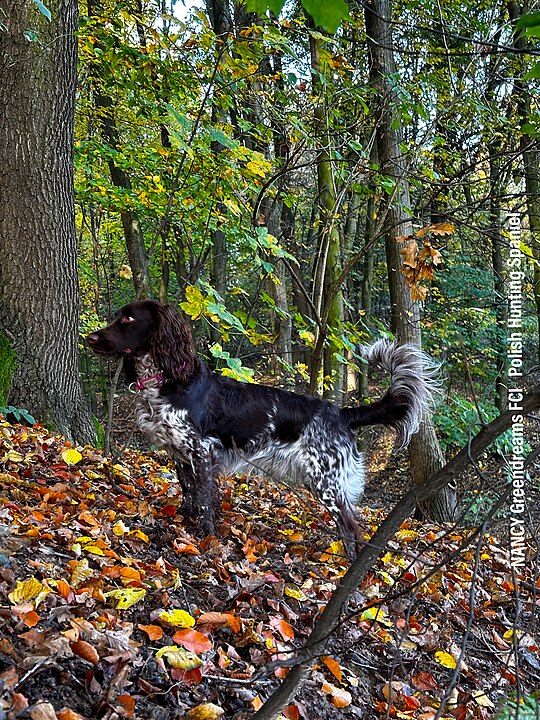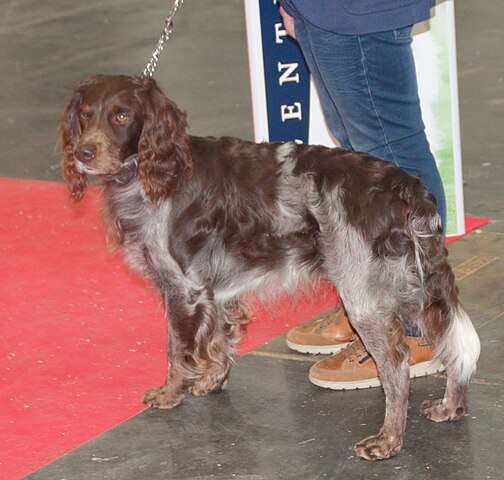The Golden Retriever was developed in Scotland but is one of the most popular dogs in the United States, thanks to their easy-going temperaments and biddable natures. This said, no single breed is perfect for everybody and anyone interested in acquiring this retrieving breed should be aware of their downsides as well – most notably their energy level, but also their propensity to shed. Goldens must be brushed regularly to keep the shedding down and the dog comfortable. Regular baths and employment of a good forced air dryer (dog dryer) will also help to blow out dead hair.
Like most sporting dogs, the Golden has a lot of energy to burn and requires a substantial amount of exercise, and just throwing the dog outside by himself will not cut it. Many bored Goldens have resorted to escape artist tactics – chewing through or jumping over their fence to find something more entertaining. Most “hyperactive” or destructive Goldens simply haven’t been given enough exercise. This is particularly true for younger dogs under the age of 2. Once most Goldens begin to mature they will start to calm down (although they still definitely require exercise). Swimming is a great way to channel their energy, as well as play dates with other dogs, dog sport activities, jogging and (of course) games of retrieve with a ball or frisbee.
While some Golden Retrievers will bark when someone comes to the door, many others are quiet and apt to just wag their tail furiously. This makes them poor watchdogs in general, and horrible guard dogs. A break-in will probably result in the dog just wanting to say hello to the robber! These gold dogs are lovers and not fighters. In keeping with their playful natures, Goldens are always up to play – which means they might shove a slobbery ball in your (or your friend’s) lap at the most inopportune times. When not asking to play, their affectionate nature means they probably want to be petted or at least be by your side at every waking moment. These are not independent dogs by any means! Many Goldens will even choose to spend their “toy chewing time” by your side. Psss, try giving a Benebone to your loving companion – https://amzn.to/410F5TG
Golden Retrievers are often touted as one of the best family dogs as they get along well with children. This said, owners with very young kids should evaluate their schedules and circumstances to determine if they have enough time to take care of both a toddler as well as a puppy! Unfortunately many people obtain a Golden because of the breed’s kid-friendly reputation but quickly find out that they don’t have enough time to take care of both properly. Busier individuals may want to opt for a slightly older dog, or wait until their child grows up a little and/or their schedule eases up. 
Goldens are extremely social dogs and generally want to be around their owners as much as possible. This means they must live inside with the family and should never be relegated to “outside dog status”. Dogs which are left alone all day or outside all of the time are prone to becoming problem chewers, constant barkers and/or destructive diggers. Some dogs will be ok if they live with a housemate, however double the number of dogs also means double the amount of time one must dedicate to training and care! While Goldens tend to get along well with other dogs, without any training or rules an owner may find themselves in over their head!
Goldens are intelligent and tend to be easy to train. Most work very well for food, although because they are so people-oriented, many love praise just as much! This versatile breed is willing and able to compete in almost any type of dog sport, if an owner is so-inclined. Goldens do need to be mentally stimulated by way of training and/or a regular job to do, so do not get one unless you are able to put in consistent work! Once they have completed the basics of obedience training, most turn into well-behaved, trustworthy companions. A reliable crate is essential for training—explore the Petmate Vari Kennel, loved by Golden owners – https://amzn.to/3B3CUE6
Because they were bred to retrieve, Golden Retrievers are very orally fixated and are always trying to put their mouths on something. Most of the time they will stick to their toys, however younger Goldens are apt to also grab your clothing, the remote control, etc, etc. Training will help this frustrating trait, as will providing them with enough of their own “stuff” to grab. Fortunately they are known for having a “soft mouth” which means they aren’t likely to damage your stuff – they just want to carry it around!
Goldens do have a variety of health problems that they are prone to including hip and elbow dysplasia, eye disease and heart disease. A prospective buyer can mitigate these risks by steering clear of pet shops and only buying a dog from a reputable breeder who does extensive health tests. As with all popular breeds, there are more backyard breeders who don’t know what they are doing and so a buyer must be extra careful. A note about the “rare English Cream” variety – these dogs are no more healthy than any other Golden (and some are much less so). A healthy Golden should live between 10 and 12 years.
Affiliate Disclaimer
As an Amazon Associate, I earn from qualifying purchases. This means that if you click on an affiliate link on this site and make a purchase, I may earn a small commission at no additional cost to you. Rest assured that I only link to products I have used, or use on a regular basis, and trust enough to recommend them to you!



